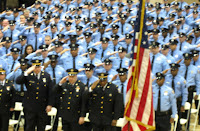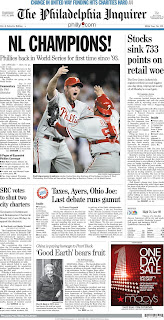 A TEMPLE STUDENT WORKING on a story for MURL was allowed to interview and ride along with a young Philadelphia police officer.
A TEMPLE STUDENT WORKING on a story for MURL was allowed to interview and ride along with a young Philadelphia police officer.In the story, which focused on the relationship between the police and the people they protect and serve in the 22nd District (just west of TU), the 24-year old officer said some off-color stuff.
“People in this neighborhood don’t care about each other,” the officer said, according to the article. “They’ll shoot each other for drugs, for money, for bulls---. All they care about is their reputation. They want to look tough.”
Later in the story, it actually got worse:
“These people are f------ disgusting. It’s like they’re animals,” the officer is quoted saying.
The officer is white, and the 22nd is a predominantly African American neighborhood.
 After responding to a situation that has calmed by the time police arrive, the officer says, "TNS. Typical N----- S---.”
After responding to a situation that has calmed by the time police arrive, the officer says, "TNS. Typical N----- S---.”Would you have published this story? How would you have handled this? Is it fair to use the police officer's name? Would you have contacted other people, as the Daily News did in a follow up story? Would you have contacted the officer's superiors?
Read the original story here.
Is it good journalism? Does it benefit anyone?
(Here is a link to a Fox29 interview with the student journalist).












